The current boom in the eCommerce industry is expected to continue in the years to come. This has inspired many newbie entrepreneurs to capitalize on the explosive growth potential of this sector by setting up an eCommerce store for selling products/services to customers.
If you too are keen to tread a similar path of venturing into the eCommerce business world, you first need to build a website for your store. There are two options available for eCommerce website creation. The first one is to hire a web developer, but the cost involved can inhibit your business’s ability to grow quickly. The other option is to go with an already-built eCommerce platform, which will save your time and money on your store’s website development.
With numerous eCommerce platforms available that seem to offer similar functionalities, choosing the apt one for your business can be a difficult decision to make. So we are hereby sharing some important factors, considering which will make it easy for you to choose the right platform for your eCommerce business.
1. Security
Customers will not buy products from your eCommerce site if they are not sure that their financial information remains protected from hackers and data thieves. For this reason, whichever platform you choose must be equipped with essential security features like PCI (Payment Card Industry) compliance, SSL (Secure Sockets Layer) certificate, fraud prevention and data backups. The platform should also perform security audits for identifying potential security risks. So necessary changes can be made for protecting customers from the risks.
You are advised to go with a platform that is built in an object-oriented programming language as such platforms contain embedded security protocols.
Magento and Shopify are two popular platforms that focus on two-factor authentication for reducing the vulnerability of websites. In platforms that lack multi-factor authentication for sensitive information protection, security plugins can provide additional safety.
2. SEO

If customers can find your store in search engines while searching for products like the ones you offer, only then they will visit your website. To make your site rank higher and visible in the search engines, SEO (Search Engine Optimization) is required.
For this reason, the platform you choose should be equipped with various SEO-related features like allowing users to write a meta description of a product, adding a blog to their website, using their own domain name, allowing customers to leave reviews, Google site map support, etc. Having these features in the platform will have a direct impact on your site’s SEO rankings.
Onveos, Magento, OpenCart and Woocommerce are some good SEO friendly eCommerce platforms. While Onveos provides independent SEO elements, the rest of the three strengthen inbound marketing initiatives.
3. Responsive Web Design

With more than half of American eCommerce shoppers having made purchases through their mobile device in 2019, eCommerce stores can’t afford to ignore this huge segment of mobile using customers. Their website should allow such customers to access it easily and make purchases from their mobile device.
If eCommerce stores opt for having a separate desktop site and mobile site, then they will have to manage different marketing campaigns, banners and product information, catalogue, etc. This consequently will increase their costs and consume more of their resources.
The better and cost-effective alternative to a separate desktop site and mobile site is a responsive web design, which automatically adjusts a site as per the screen sizes of various devices including desktops, laptops, mobiles and tablets. Thus, responsive web design helps you to provide a great experience to users irrespective of the device they use.
You should go for a platform that supports responsive web design. Magento, WooCommerce and Shopify platforms come equipped with various responsive themes and templates for making websites vertically stacked. With Shopify, users can also edit HTML and CSS directly. Also, they can change the size, positioning and colors of any element on the page within the platform.
4. Supports Multiple Selling Channels
By offering products/services on different selling channels, an eCommerce store can increase its revenue. So you should choose a platform that allows you to sell products or services across different selling channels like FB Messenger, Instagram, Amazon besides others.
Shopify, WooCommerce, BigCommerce, Magento and PrestaShop are some of the best multi-channel eCommerce platforms. By enabling centralized management of your inventory data, these platforms help you to create diversified selling options in online marketplaces and earn enhanced revenue from them.
5. Integrations
An eCommerce platform is equipped with all the things that are required to run an eCommerce business. Still, integrations and plugins need to be added to a platform for providing some key functionalities like tax calculators, payment gateways, accounting, email marketing tools, shipping apps, etc.
You will come across a set of necessary integrations and plugins that are common to all eCommerce platforms. But you should prefer a platform that supports integrations and plugins pertinent to your business and has an active community, that constantly works to improve the platform and resolve any issues with it.
6. Technical Support
Undesired situations like software outages, server downtimes and server crashes may occur at any time, which can hinder customers from accessing your site and making purchases. Not only these will cause you loss of revenue, but they also affect your brand image.
To get out of such situations fast and make your store function smoothly again, you require prompt technical support from your eCommerce platform.
For this reason, you should go with a platform that provides support exactly when you require. Before opting for a particular platform, do not forget to raise these questions before its customer service representatives. Is technical support available 24/7 or within specific hours? How will they provide support; through a call, online or chat, self-service, etc.? How many levels of support they offer and associated costs?
7. Scalability
With the passage of time, your eCommerce business will grow. So you should choose that platform which can scale up as per the size of your business. Also, the platform should not charge exorbitant fees for providing extra features and storage for your increased business needs.
8. Price
Pricing is one of the most important considerations while choosing a particular platform for your store. The price of an eCommerce platform depends on various factors like design, setup configuration, self-hosted vs hosted, custom development, maintenance, etc.
Different eCommerce platforms come with different prices. Shopify platform has a per month starting cost of $9 which goes to $299 per month. Volusion has a starting price of $15 per month that goes to $299 per month. BigCommerce has a starting price of $29.95 per month which goes up to $249.95 per month. 3dcart has a starting price of $19 per month that goes to $229 per month.
While Shopify is ideal for business owners requiring multiple features and add ons in their app, Volusion provides a more selling-focused experience. While BigCommerce is perfect for SEO purposes, 3dcart is equipped with various useful features and builds and manages eCommerce stores really well.
Comparing prices of various platforms vis-a-vis their advantages and disadvantages will help you choose the ideal platform that best suits your budget.
Choosing the right eCommerce platform at first time is crucial to your business’s smooth functioning and growth. If you fail to make the right decision, you will have to switch to a different eCommerce platform later which can turn out to be a frustrating, time consuming and expensive experience for you. Analyzing the above-mentioned aspects of available platforms will help you choose the right platform as per the specific needs of your store’s website at the first time and achieve success in the world of eCommerce.
In case you need expert advice or assistance on eCommerce website development, feel free to talk with Matrid Technologies’ eCommerce development specialists here.

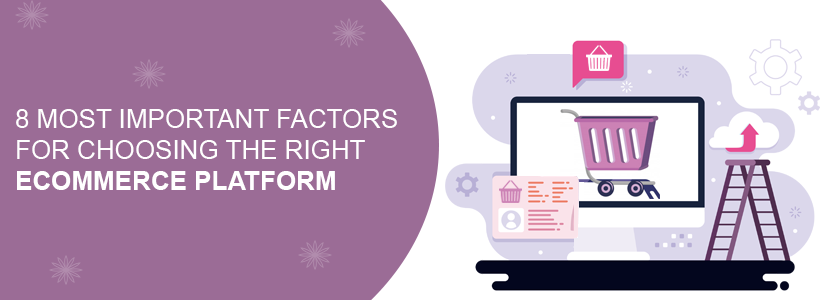

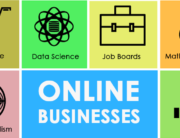
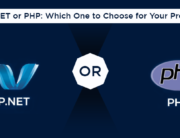
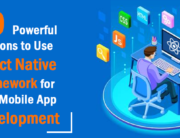
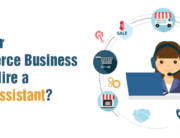
Leave A Comment